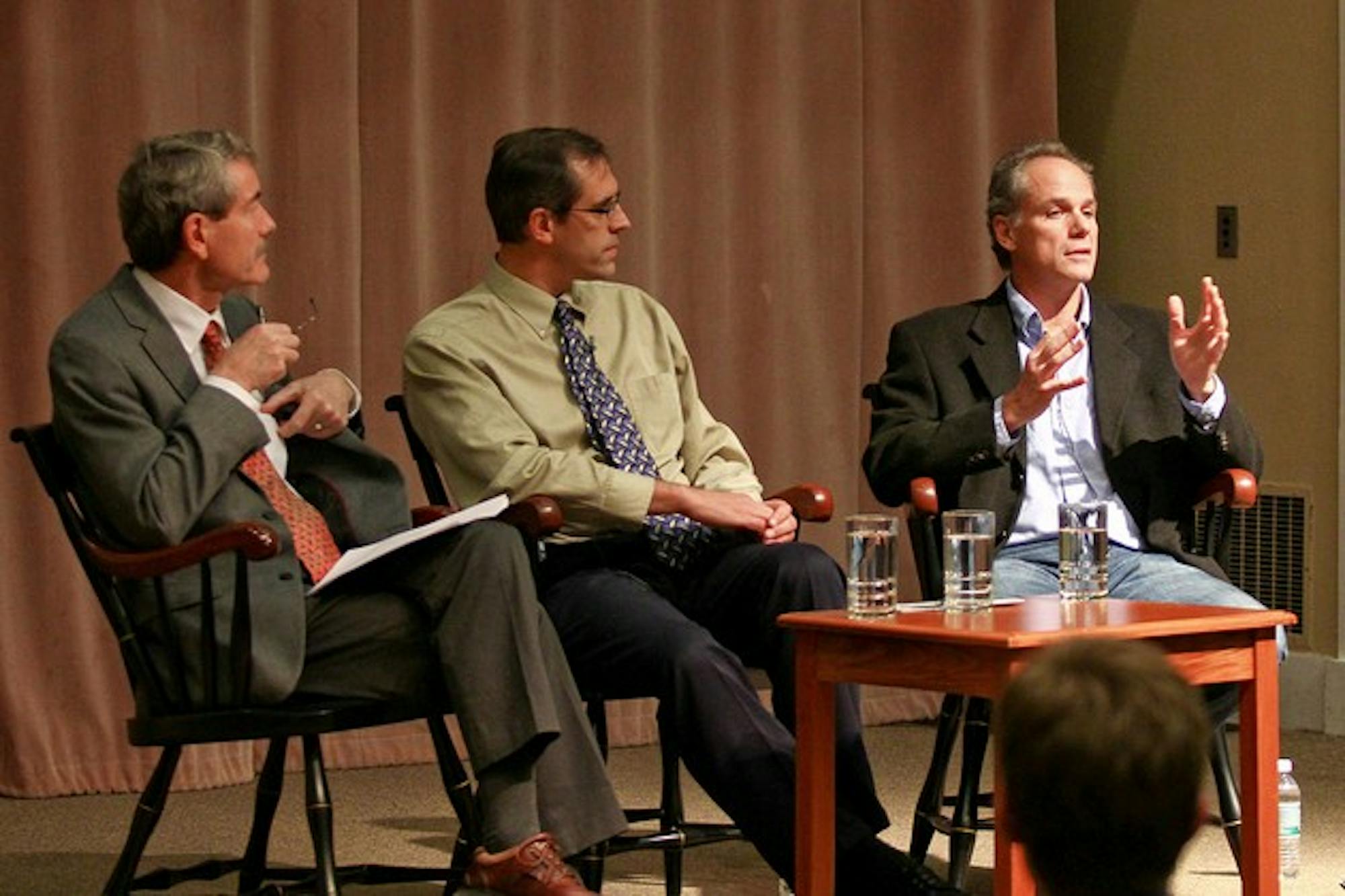Gleiser started his portion of the panel by harkening back to 1543, when "Copernicus was on his deathbed." Prior to Copernicus's heliocentric theory, humans believed that God had created humans as the "cream of the crop," Gleiser said. The geocentric theory depicted hell at the center of the universe and, by extension, the Earth making people's primary goal the ascent to the sky, or heavens.
Although the heliocentric theory initially stirred up controversy, particularly with the Christian Church, it made aesthetic and scientific sense, Gleiser said.
The theory precipitated challenging questions, Gleiser said.
"Once we're not the center, who are we?" Gleiser said. "Are we still important? Is there life on other planets? Where there's life, there are sinners do they hold the same Jesus as their savior? Are we sharing heaven with aliens?"
"Science does not and cannot answer all the questions of the world," Gleiser said.
To many, modern science paints a negative vision of humanity, Gleiser said. He echoed the "God of the Gaps" theory, presenting the view that as humans learn more through science, their own role in the universe becomes less and less important. Traditionally, God entered where science could not explain, but now that science is "beginning to fill in the gaps, the role of God and the role of his creations, diminishes," Gleiser said.
In his concluding remarks, Gleiser urged the audience to see the glass half full, rather than half empty.
"I have a different vision," Gleiser said. "I look at our Earth as a special place in comparison to other planets, which are barren [and inhospitable to life]. In our future investigations, multicellular life will be rare, and intelligent life will be extremely rare."
Hutchinson, who introduced himself as a "believer and follower of Christianity," provided a theological perspective to complement Gleiser's comments on science.
"The heart of Christianity [lies in the fact that it] is not a cosmological system," Hutchinson said. "People who assert that Christianity and science are in an eternal war are asserting a myth."
According to Hutchinson, Christianity actually provides a "fertile theological and cultural climate for science."
Religion empowers science, Hutchinson said. The fear of being disrespectful to God should never hamper scientists from conducting experiments, he said. Hutchinson advocated a movement from "armchair to applied science."
Hutchinson said he disagreed with two of the beliefs that pervade the Western intellectual world, namely that reality can only be discovered through applications of science and that there is no authority higher than individual freedom.
"Christians believe that reality and authority come from loving relationships with God and with each other," Hutchinson said.
Giving a practical example of how his love for his wife cannot be quantified or even proven, Hutchinson asserted that relationships do not have bound criteria and must be "lived out" to be understood. He warned against a common pitfall of empiricism, saying that one of the most devastating errors is treating relationships with other human beings as experiments.
"Science may give us justification for justice, but it does not provide the basis for morals," Hutchinson said.
Gleiser and Hutchinson came to an apparent disagreement after Gleiser said that whereas empiricism is central for science, it is not entirely necessary for religion, which hinges more on faith.
"Faith is often portrayed as believing in something that has no evidence, or being the teeth for evidence," Hutchinson said. "[But] true Christianity is not like that. [In true Christianity,] there is evidence to support faith."
Some audience questions addressed evidence for the "first event," or the beginning of the universe. Additionally, they contended with the continuity between a natural, or human, and a spiritual understanding of the world.
The discussion came full circle as both panelists said that they saw the sacredness of life to be both the significance of existence and the essence of human morality.




